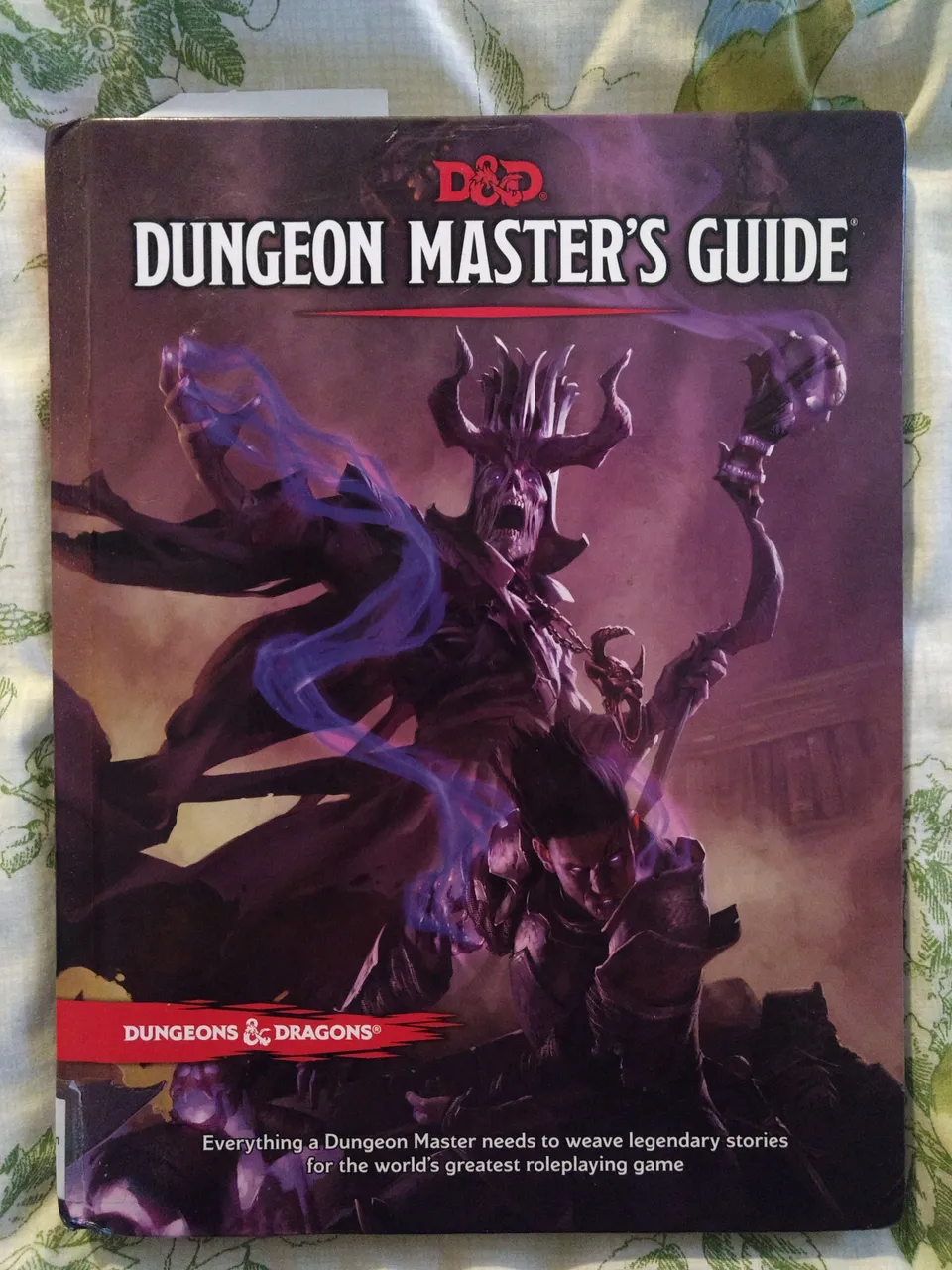
After taking a 1 year break from playing Dungeons & Dragons (my old group split up due to people moving away), a new campaign seems to be in the works, with a new group of players. There is one carryover from the previous group besides myself, but other than that, this will be a group comprised entirely of players who are new to roleplaying. My friend (the carryover) has been itching to DM, but he's never done it before. With such an inexperienced group, I thought it would be a good idea to bone up on the Player's Handbook, to help the other players, and also the Dungeon Master's Guide, to help the new DM.
But as I started to read the DMG, I realized that I had never read it before. Somehow I got through years of playing and DMing without reading this core rulebook. How did this happen? Well, I first started DMing by default, really. The DM back then (this was AD&D 2nd, so maybe the early 1990's) wanted to have a turn at playing, and no one else wanted to do it, so I volunteered. I basically just made up a town, invented a problem that the town was having, and it took off from there. I knew enough about the mechanics from being on the player side to run things in the beginning. Then I just learned and grew as the campaign progressed. This continued for several years, and I became the default DM for the group. Mostly I emphasized the story and didn't let details like dice rolls get in the way of the players having a fun experience.
So now, all these years later, I find myself amazed at the level of minutia contained in the DMG. The emphasis seems to be on random tables and treasure. There are about a hundred pages that basically just list examples of treasures that the players might find. There are also tables for almost everything you can think of. You can roll the dice to determine what monsters the party encounters, how generous a shopkeeper is feeling that day, what the weather is like when travelling through the wilderness, even how likely a player is to end up in jail following a night of carousing. Was the DMG always like this, or is this particular to 5e?
IMO, tables like these can be used as a spring board for when you've got writer's block, but I don't imagine they would make for a terribly compelling story arc. I feel like you're better off thinking through the situation and then doing what makes sense for the sake of the story you're telling.
Example: Rather than roll up a random treasure after the party defeats a band of orcs, maybe think through what a band of orcs might be carrying. A bit of gold, some rusty weapons, whatever they've plundered from the local village. There might be a magical amulet or something, but only if it serves some plot or sub-plot device: the amulet was carried by a cleric that the head orc bested in combat (which is also why the head orc is missing an eye; he barely won), the same cleric whose brother has posted a notice in the next town over offering a reward of 50 gold for information on the whereabouts of said brother.
Details like that add to the enjoyment of the game. You've not just given the players 50 gold for beating some orcs because a random treasure table said so. You've led them on a side quest or two, given them a mystery to solve (what does this amulet do?), given them some non-combat role playing situations (How should we break the news that his brother is probably dead?) and introduced them to an NPC (the brother) who is now grateful to the adventurers, which can lead to other opportunities for adventure.
This isn't to say that there isn't any advice in the DMG on how to run a game, I was just surprised at the amount of pages devoted to what are essentially examples of elements that could be included in your adventures.